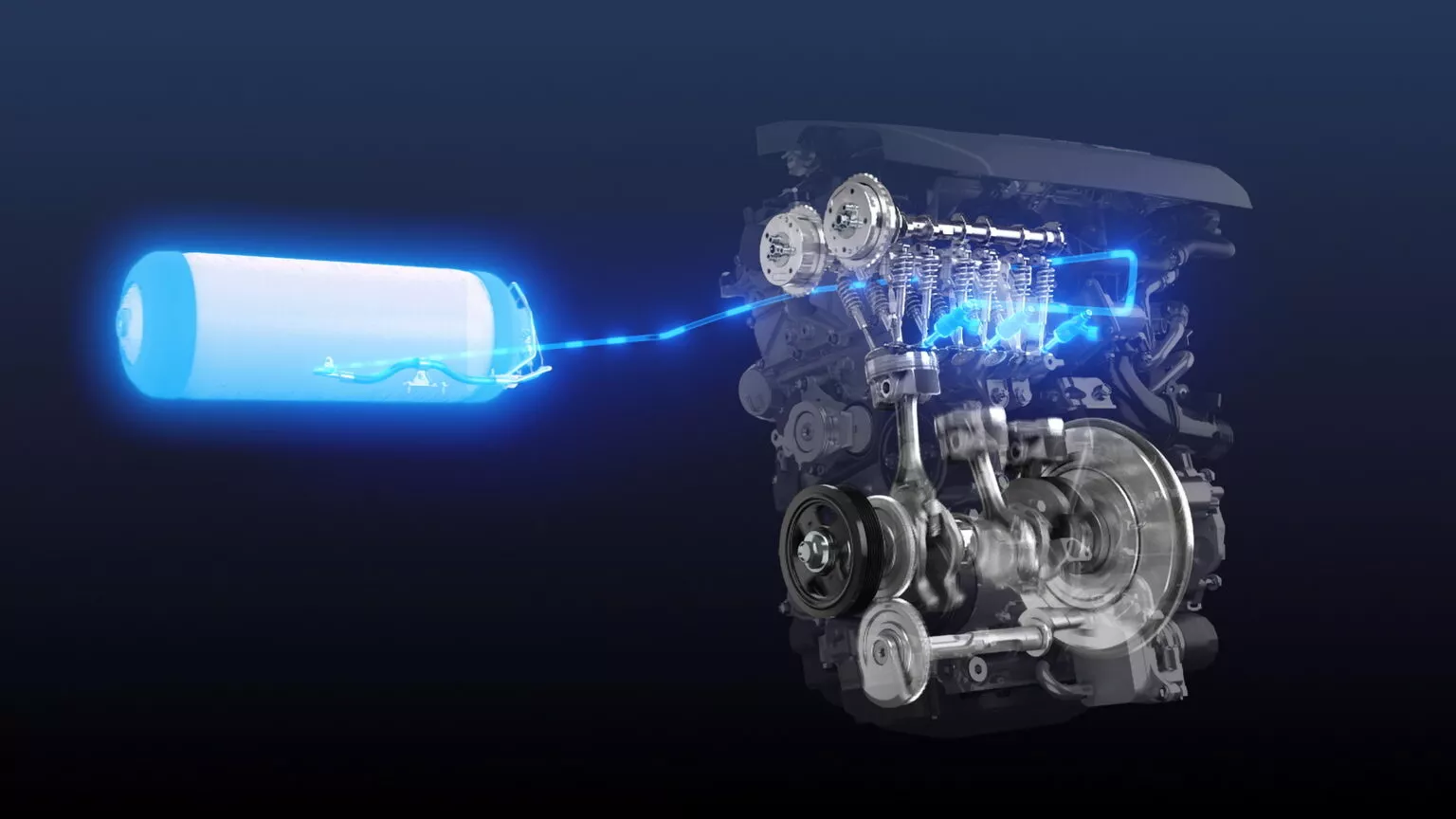
Posted on 12/22/2023 7:50:29 AM PST by Red Badger
A hydrogen combustion engine would be ideal for a Toyota GR branded sports car, if only drivers could fill up
Toyota remains adamant that a variety of emissions-reducing technologies will be important for the automotive industry. One, in particular, will be helpful for people who like to drive fast: hydrogen combustion engines.
The automaker believes that the technology could help keep internal combustion engine sports cars alive in an electric world. In fact, Masahito Watanabe, the head of Toyota’s Gazoo Racing division, says that complete electrification is not a priority for the sub-brand at this time.
“We still think the internal combustion engine has some potential,” Watanabe told Autocar. “We don’t want to give up. It’s not over just yet, because if you look at the internal combustion engine, there’s still hydrogen combustion that can be a part of that zero-emission line-up, so I think that’s going to continue.”

However, he admitted that a major hurdle stands in the way of the technology: infrastructure. Like any new technology, people who want to drive a hydrogen vehicle lack easy access to filling stations.
But Gazoo Racing will get some help on that score, in the form of a Hydrogen Factory Europe. A new division of Toyota Motor Europe, it will be tasked with accelerating the commercialization of hydrogen technology and systems.
The automaker says that it believes the continent will soon be one of the largest hydrogen markets in the world, thanks to government investments and growing interest from the private sector. Toyota says that the technology will be useful for heavy-duty transportation, like trucks, coaches, shipping, as well as sports cars.
“What we want to do in the end is provide as many options as possible to our customers,” said Watanabe. “So we will continue to develop the hydrogen internal combustion engine as part of that.”
That means that, in addition to hydrogen combustion engines, Gazoo Racing will also develop electric, hybrids, and fuel cell vehicles. However, progress on hydrogen engine vehicles is going well, as the technology has already taken a GR Corolla to the finish line in a 24-hour race in the ENEOS Super Taikyu Series this year.
Good for them. Batteries are bad tech.
As to hydrogen, make it on site from water and leccy. No distribution system needed. It is basically a very inefficient EV approach.
Questions never asked: How many gallons of fossil fuel does it take to create a gallon of hydrogen?
Sounds about as clean as EVs powered by coal plants.
“Toyota gets it - a Need For Speed is a human universal + fully electric will never be the total solution that some think it is.”
An oversized electric golf cart fanbois was continually going on about how fast the wretched thigs were. At least once before a lengthy recharge.
The hydrogen angle is appealing for real automotive fun, not golf cart virtue signaling.
I agree, swap out a 30 or 40lb fuel cell. Some light enough and easy enough that a small teen girl can do it.
More madness is this. To make hydrogen from water via electrolysis is about 75% efficient. The electricity comes from petroleum or coal powered plants mostly. You can make it from coal or natural gas via a high temperature process that is not energy efficient in the least. Hydrogen is a bitch to work with. It leaks, it causes hydrogen embrittlement and if one of those tanks ruptures in a multistory garage you will have a hell of an explosion that will probably bring the garage down.
In effect you have already lost 25% of your energy before it is used in your car and perhaps blown up a garage, your house, etc.
Disclaimer: Opinions posted on Free Republic are those of the individual posters and do not necessarily represent the opinion of Free Republic or its management. All materials posted herein are protected by copyright law and the exemption for fair use of copyrighted works.